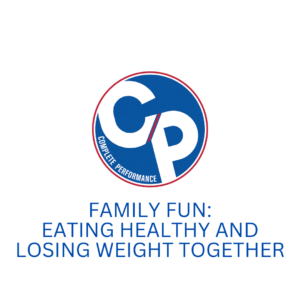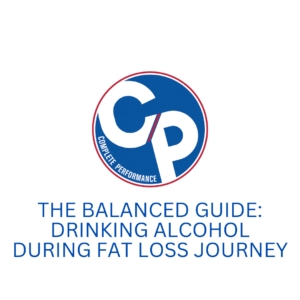“I can’t have it.”
“No, I don’t want it.”
“You KNOW you don’t need this again.”
“Don’t do this again.”
“Just say, NO!”
Buuuuuuut,
You did have a really stressful week…
You fought with your partner AGAIN…
Having your kids home this much might ACTUALLY drive you insane…
You’ve worked REALLY hard, sacrificed a lot, and have seen some pretty good results, you DESERVE to celebrate…
And before you know it, your hands in the bag with half already having been shoveled into your mouth.
You can’t even taste what you ate, and by the time you’re conscious and aware of what you just did, you’re SICK to your stomach.
But is it really that you ate so much or is it that you just let your day and emotions get the best of you AGAIN?
Maybe both?
YOU ARE NOT ALONE.
In 2017, the APA found that 40% of American adults respond to stress by overeating monthly, weekly, or daily.
That’s only the people comfortable enough to own up to it…
Because of my clients (online, hybrid, and in-person at Circle Pines) 92% admit to struggling with emotional eating.
So, if it’s SUCH a problem, why isn’t there a solution, program, or pill that can help us get over it??
Because if I’m being honest, you can’t just GET OVER emotional eating.
BUT if you better understand ALL of emotional eating you can work THROUGH it.
What is Emotional Eating?
The first step in working through emotional eating is understanding WHAT actually is defined as emotional eating.
Now, I don’t know about you, but with the way my days go, I’m not quite sure I ever eat without some type of emotion.
Does that mean I’m ALWAYS emotionally eating?
Not necessarily.
According to Michigan Medicine, emotional eating is a neglect of your body’s natural hunger and fullness signals leading you to eat more than you need or want.
Emotional eating poses a major interference to one’s food relationship, your ability to make healthy food choices, and maintain a healthy weight.
Emotional eating is most often considered to be triggered by negative emotions like sadness, depression, stress, or loneliness.
What many don’t realize is that emotional eating can be triggered by POSITIVE emotions – excitement, happiness, and amusement. People often overeat from positive emotions as part of a reward, celebration, or social gathering.
What Makes Emotional Hunger Different from Physical Hunger?
Breaking the cycle of emotional eating requires you to get back in touch with your true physical signs of hunger, which comes from defining the characteristics of both emotional and physical hunger.
Take a look at these differences.
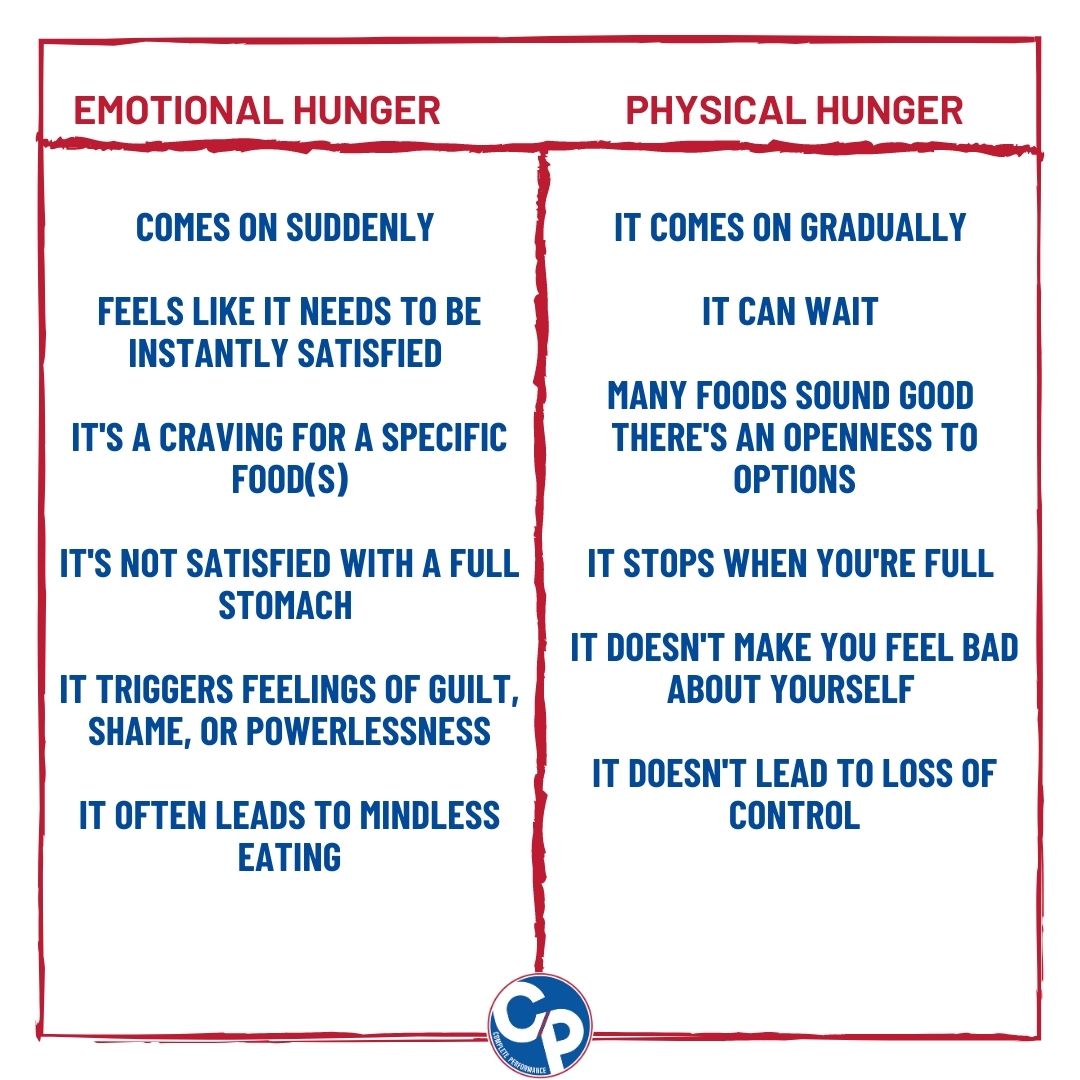
What Causes Someone to Emotionally Eat?
Emotional eating has become so problematic for Americans, that a great deal of research has been dedicated to understanding and defining The Emotional Eating Cycle.
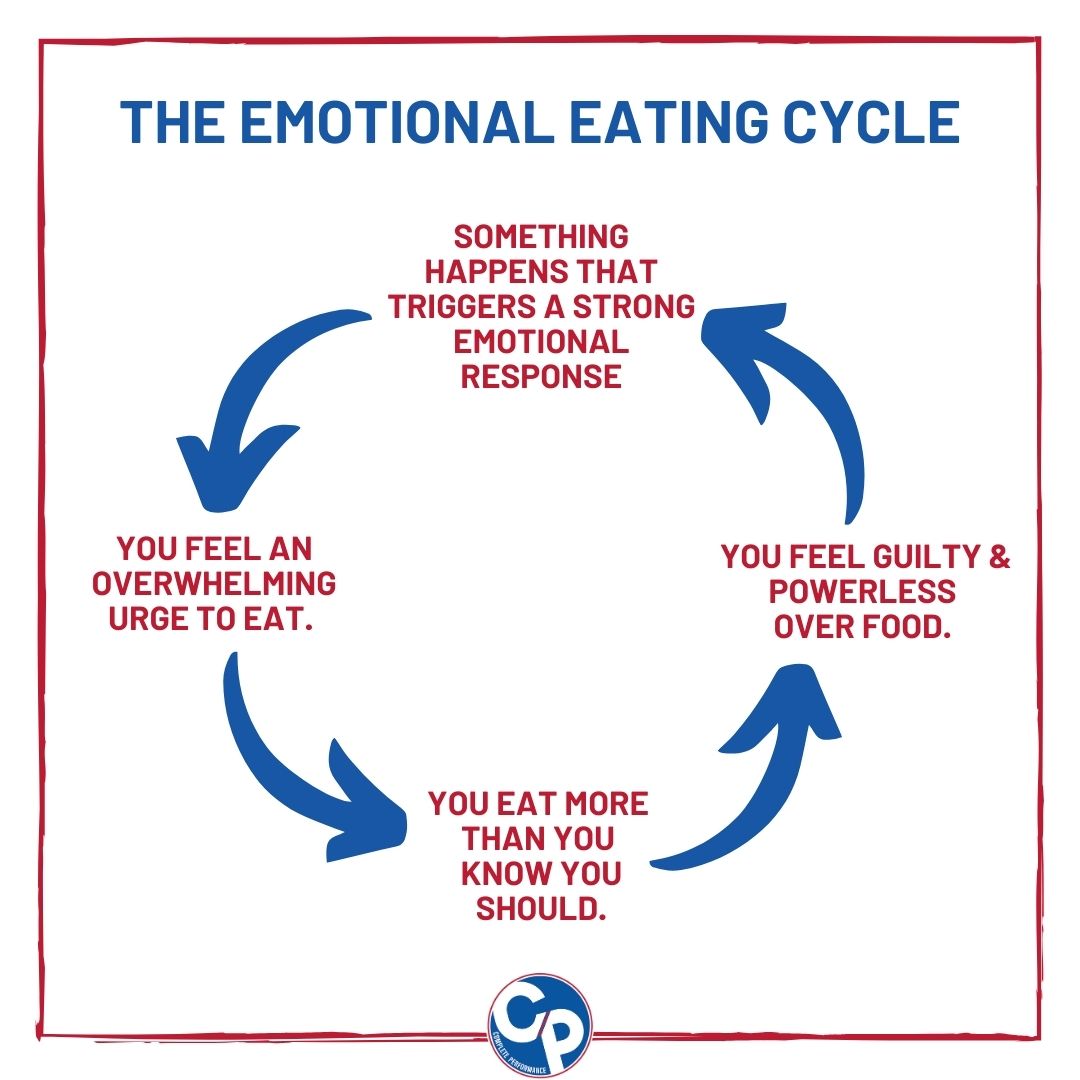
It’s okay to eat as a reward, celebration, or quick pick-me-up, but when the root problem is not addressed, you enter into this unhealthy cycle that becomes increasingly more difficult to break from.
Here are some of the top life events that trigger emotional eating:
- Relationship Conflicts (Intimate, Social, or Professional)
- Work
- Fatigue or Exhaustion
- Financial Pressures
- Health Problems
- Childhood Habits
- Sudden Boredom
- Continual Emotional Stuffing
- Social Influences
How Do We Stop Emotional Eating?
There’s no food, drink, pill, or action that can just stop or break the emotional eating cycle.
It takes practice – and LOTS of it.
But through my own journey with emotional eating and that of working with plenty of Complete Performance clients, I’ve developed a framework to help individuals practice breaking out of the emotional eating cycle.
Check it out.
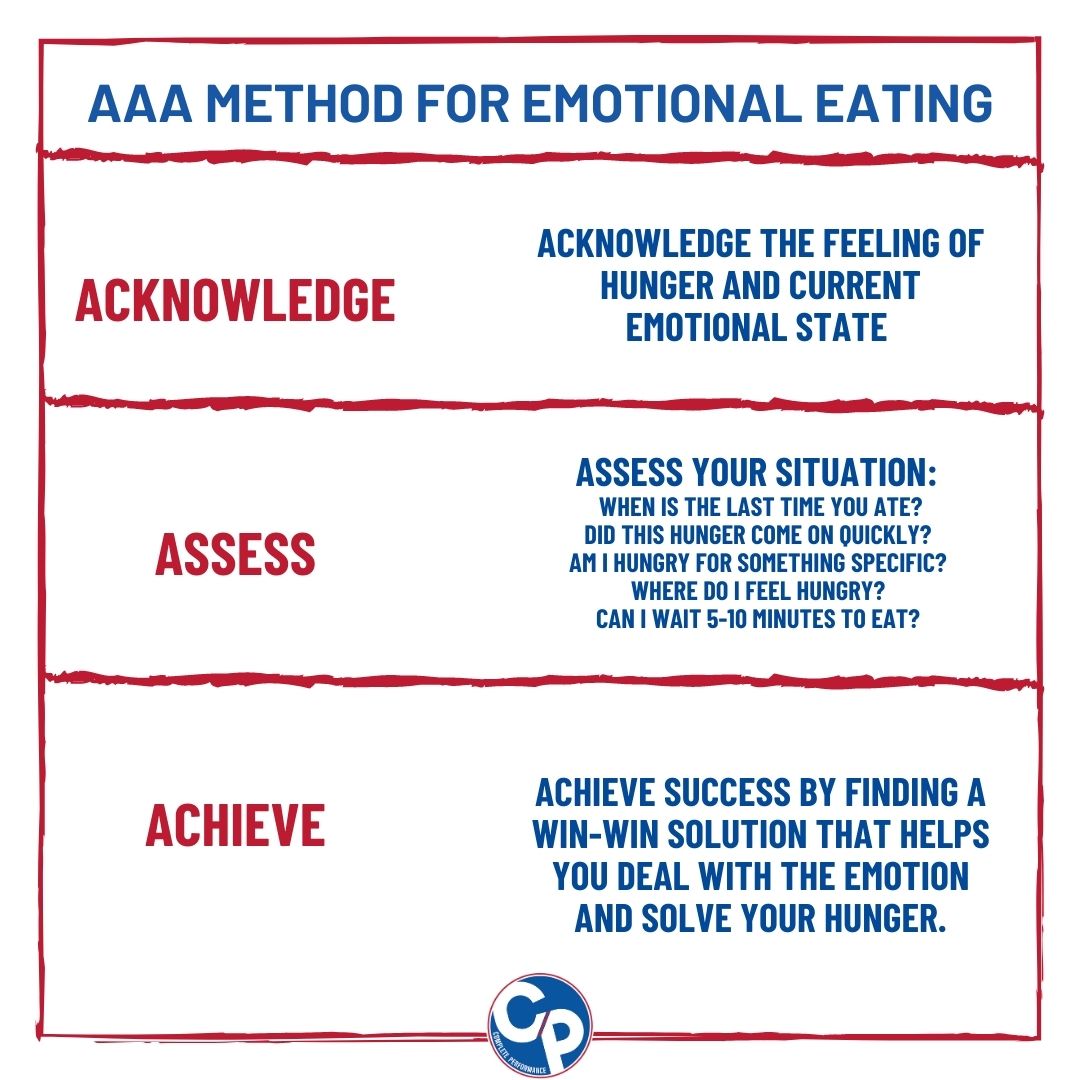
When to Seek Professional Help?
Look, the reality is that sometimes our relationship with food becomes damaged beyond repair, and it becomes time to seek professional help in mending that relationship.
If you truly feel your eating patterns are out of control, I recommend you seek help from your doctor. Your doctor may have dietetic or counselor recommendations to help address the mental and physical side of eating.
About The Author
Jordan Davies is the Co-Owner of Complete Performance. Jordan has her B.S. in Exercise Science and Psychology, and her M.A. in Holistic Health Studies. She is a CSCS certified strength and conditioning coach, and a PN-1 and NCI-1 certified nutrition coach. She loves to study how the human body needs to be moved and nourished and making that fit to your unique lifestyle. Click Here Now to Apply for Coaching with Jordan.



